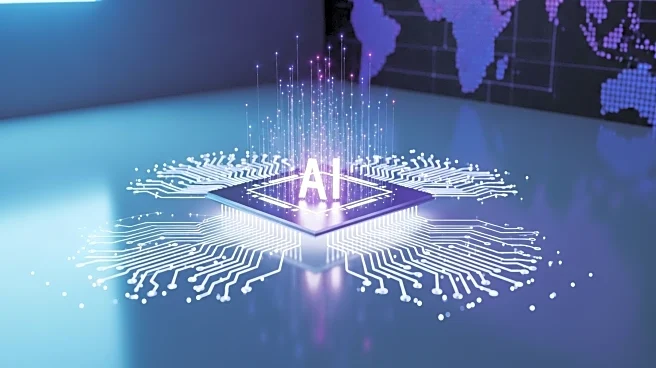What is the story about?
What's Happening?
Raj Ganguly, co-founder and co-CEO of B Capital, has stated that artificial intelligence is entering a 'super cycle' that could last up to 20 years. This cycle is expected to bring significant changes globally, affecting various sectors such as drug development and the job market. Ganguly highlighted that the current phase is just the beginning, with AI poised to transform industries beyond consumer technology, focusing on areas like generative AI and advanced semiconductors. The shift is marked by a decrease in Silicon Valley's dominance, which now accounts for less than half of the global tech ecosystem, despite its substantial influence. Ganguly also noted that AI enables sole founders to succeed without traditional resources, as it allows them to build and code without prior knowledge.
Why It's Important?
The predicted AI 'super cycle' signifies a major shift in technological innovation and economic growth. As AI becomes more integrated into various industries, it could lead to significant advancements in fields like healthcare and manufacturing, potentially increasing efficiency and reducing costs. However, this transformation may also disrupt existing job markets, necessitating new skills and training for workers. The investment in AI by major companies underscores its potential to drive future economic growth, but it also raises concerns about market overvaluation and the sustainability of such rapid advancements. Stakeholders in technology, business, and policy will need to navigate these changes carefully to maximize benefits while mitigating risks.
What's Next?
As AI continues to evolve, industries will likely see increased automation and innovation, prompting businesses to adapt their strategies and workforce training programs. Policymakers may need to address regulatory challenges and ethical considerations associated with AI deployment. The focus on 'deep' tech suggests a shift towards more specialized applications, which could lead to new business models and opportunities. Companies and investors will likely continue to pour resources into AI research and development, aiming to capitalize on its transformative potential.
Beyond the Headlines
The AI 'super cycle' could have profound ethical and cultural implications, particularly concerning privacy, data security, and the role of AI in decision-making processes. As AI systems become more autonomous, questions about accountability and transparency will become increasingly important. Additionally, the global nature of AI development may lead to geopolitical shifts, as countries compete for technological leadership and innovation. Long-term, the integration of AI into everyday life could reshape societal norms and values, influencing how individuals interact with technology and each other.
















